Airborne Wind Energy
Course introduction
Roland Schmehl
5 September 2025
Outline
- Instructors & students
- Who are we?
- Scope & learning objectives
- Structure & resources
- Beyond the course
Slide navigation
- HTML-slides are implemented in Reveal.js.
- Preferably use Google Chrome or Firefox because Safari (Apple) does not implement all required Web-Standards.
- Page Up and Page Down (or arrow keys) step through slides.
- Esc toggle 2D slide grid overview.
- F11 or f/Esc toggle fullscreen mode.
- S view speaker notes (needs your explicit permission to open pop-up window).
- opens navigation menu.
- opens new white board.
- activates pens on current slide.
- save white boards.
Instructors & students
Dr. Roland Schmehl
- MSc in Mechanical Engineering from University of Karlsruhe (KIT)
- PhD in Fluid Dynamics from University of Karlsruhe (KIT)
- Studied & worked in Phoenix, AZ, and Los Angeles, CA
- PostDoc at European Space Agency (ESA)
- Software Architect at TNO Automotive Safety Solutions (now Siemens)
- Associate Professor at Aerospace Engineering, TU Delft
- More than 90 peer-reviewed publications on airborne wind energy (AWE)
- NWO project NEON, EU projects AWESCO, REACH, MERIDIONAL and AWETRAIN
- Board of Directors Airborne Wind Europe, WP1 lead IEA Wind Task 48
- Co-Founder Kitepower
- Research areas:
- Airborne wind energy, all aspects
- Computational aeroelasticity and fluid-structure interaction
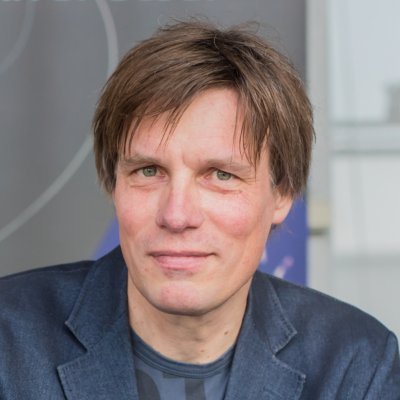
Dr. Daniele Ragni
- MSc in Thermo-Mechanical Engineering from Universitá Politecnica
delle Marche, Ancona - Researcher at German Aerospace Center (DLR), Göttingen
- Researcher at NLR and DNW, the Netherlands
- PhD in Aerospace Engineering from TU Delft
- Associate Professor at Aerospace Engineering, TU Delft
- NWO projects Sealant, THAMES, IPER-MAN
- EU projects ENODISE, SMART ANSWER, Herwingt
- ERC Consolidator Grant MORASINA
- Co-Founder Muteskin
- Main research areas:
- Aeroacoustics
- Noise from the interaction of rotors with airframe components
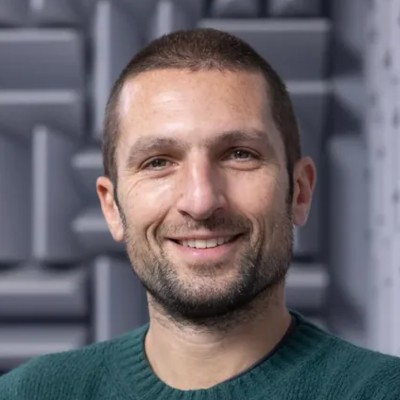
Students
- MSc track Aerodynamics & Wind Energy (TU Delft Aerospace Engineering)
- MSc track Sustainable Energy Technology (4TU)
- MSc track Rotor Design (European Wind Energy Master EWEM)
- Various other TU Delft MSc tracks that accept the course as elective
- PhD researchers as part of their training
Course is followed by students from various engineering backgrounds
Not required is specialized aerospace
engineering knowledge, but …
you should be familiar with fundamental
mathematical and physical concepts
Who are we?
TU Delft AWE Research Group
Kitepower - our spin-off company
Photo courtesy Kitepower (2024)
Scope & learning objectives
Scope
- AWE conversion concepts
- Key elements of AWE systems
- Potential & technical challenges
- Industrial developments & academic research
- Theory of tethered flight
- Performance estimation
- Wind resource at higher altitudes
- Scaling up & wind parks
- Economic assessment & markets
- Environmental footprint
- Legislation & certification
- Social acceptance
- Kite design
- Kite flight dynamics, aerodynamics & aeroelasticity
Course learning objectives
- Differentiate the working principles of AWE concepts (how)
- Understand the challenges and opportunities for AWE (why)
- Develop an overview of the AWE sector and understand what the different academic and industry players are working on (who & where)
- Identify the technology readiness level of AWE concepts (when)
- Develop modeling approaches for tethered flight
- Develop operation approaches for AWE systems
- Predict the electrical power output of AWE systems
- Idendify the design and operating parameters affecting the power output
- Understand the influence of the wind field, changing in altitude and time, on the power output
- Understand how kite design affects power output and steering characteristics
- Understand the aerodynamics and wing deformation of flexible membrane kites
Structure & resources
Structure
The course is divided into 4 parts:
- Lectures 1-3: From kites to airborne wind
energy
Introduce AWE, and present a historical perspective on kites, and a portfolio of current prototypes. - Lectures 4-7: Physics of tethered
flight
Cover the physics of tethered flight and systematically develop a quasi-steady theory of energy harvesting with kites, complemented by a self-paced workshop in a Jupyter notebook (Python). - Lectures 8-9: Energy harvesting with
kites
Describe the practical operation of AWE systems and the performance and potential of the technology in the future energy system. - Lectures 10-12: Kite design and
control
Detail the flying components of AWE systems, with a focus on the flight dynamic, structural dynamic, and aerodynamic behavior, as well as control.
Each lecture takes 2 ✕ 45 minutes.
Schedule
- Lecture 1: 05-09-2025, 10:45-12:45, AE Hall K
- Lecture 2: 12-09-2025, 10:45-12:45, AE Hall K
- Lecture 3: 19-09-2025, 10:45-12:45, AE Hall K
- Lecture 4: 26-09-2025, 10:45-12:45, AE Hall K
- Lecture 5: 03-10-2025, 10:45-12:45, AE Hall K
- Lecture 6: 10-10-2025, 10:45-12:45, AE Hall K
- Lecture x: 17-10-2025, 10:45-12:45, AE Hall K (backup date)
- Self-paced Python workshop: homework
- Lecture 7: 14-11-2025, 10:45-12:45, AE Hall K
- Lecture 8: 21-11-2025, 10:45-12:45, AE Hall K
- Lecture 9: 28-11-2025, 10:45-12:45, AE Hall K
- Lecture 10: 05-12-2025, 10:45-12:45, AE Hall K
- Lecture 11: 12-12-2025, 10:45-12:45, AE Hall K
- Lecture 12: 09-01-2026, 10:45-12:45, AE Hall K
- Exam: 30-01-2026, 13:30-16:30. ME-Hall I (34.D-1-200)
Resources
Brightspace: AE4T40 Airborne Wind Energy (2025/26 Q1)
- Classroom lecture slides & video recordings + additional material
- Literature collection: book chapters and journal papers
- Exam collection: more than 10 years of exams with solutions
Book of Abstracts of the Airborne Wind Energy Conferences 2011-2024
Related activities
Association of the airborne wind energy (AWE) sector, promoting the development and deployment of AWE Systems. Airborne Wind Europe encourages collaboration and exchange between technology developers, policy makers, research institutes and universities, as well as other stakeholders like public administration and authorities, suppliers, utilities, energy consumers, investors and financial institutions.
IEA Wind Task 48 Airborne Wind Energy
International co-operation of 24 countries and sponsor members that share information and research activities to advance wind energy deployment. Task 48 has five work packages on important aspects of airborne wind energy.
The Story of Makani (Documentary)
Beyond the course
Internships & graduation projects
Industry
- Kitepower (NL)
- Skysails (DE)
- Enerkíte (DE)
- Kitenergy (IT)
- Kitemill (NO)
- Windlift (US)
Academia
- University of Ghent (BE)
- DTU Wind (DK)
- University of Stuttgart (DE)
- TU Munich (DE)
- Munich University of Applied Sciences (DE)
- University of Freiburg (DE)
- Eastern Switzerland University of Applied Sciences (CH)
- Politecnico Milano (IT)
- UC3M Madrid (ES)
- University of Montpellier (FR)
AWETRAIN: EU-funded Doctoral Network
- Marie Skłodowska-Curie Action in the EU Horizon Europe framework program
- Partners
- Technical University of Denmark (DTU) - coordinator
- Delft University of Technology (TU Delft)
- Munich University of Applied Sciences (HM)
- Politecnico di Milano (Polimi)
- Kitemill AS
- Kitepower BV
- Airborne Wind Europe
- December 2024: Start project
- Until November 2025: Hiring phase for 12 PhD candidates
AWETRAIN: Research topics
- The impact of unsteady atmospheric flows on AWE (DTU)
- Robust operation of AWE in low and high wind speed conditions (Kitemill & DTU)
- Robust autonomous control of an onboard generation AWE system (Polimi)
- Fully autonomous AWE operation over long time horizons (Polimi)
- Optimal scaling and clustering for AWE (TU Delft - AE)
- Wind farm optimization and operation (Polimi)
- AWE operation for grid serving behaviour (Kitepower & TU Delft)
- Reliable and functional electrical systems for AWE (HM)
- The mutual impact of AWE based plants on the electricity grid
- The economic potential of AWE in the European electricity grid (DTU)
- Strategies for AWE commercialisation (TU Delft - TPM)
- Achieving technological legitimacy for AWE from both a local planning and broader social-political context (DTU)
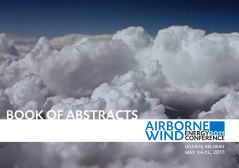
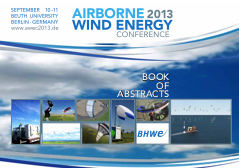
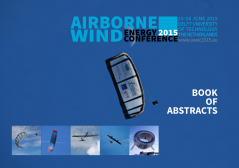
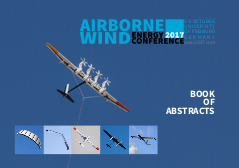
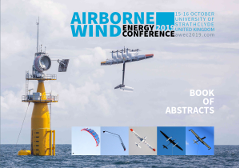
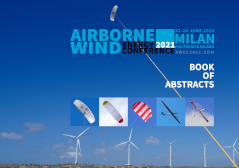
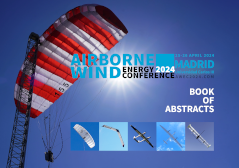
Social media
@kite_power
@rolandschmehl
@laddermill